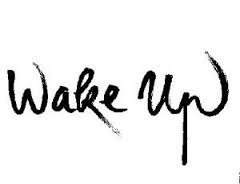 How can we practice being fully in the present moment while listening or/and performing? How can we stop self-doubts and self-criticism while we play? After all, isn't ear training and critical hearing part of a musician's learning process? Through many years of musical training we had to learn to decipher good tones from bad tones, stylistic features as acceptable or unacceptable, and we need to turn all of that off when we perform on stage?! As performers, how can we fall in love again and again with a piece we have been rehearsing thousands of times? Athletes have what they call "tappering off" week, the week before the "performance." They gradually decrease their hours of training as the deadline approaches, in order to save their energy. We musicians should do the same, to save some spontaneity. The most wonderful audience members are those who come without expectation. While I easily have fun at Salsa, Rock, Blue Grass, or Jazz concerts, I sometimes find myself incapable of turning off my thoughts and critical listening habit when I attend "Classical" music concerts. The more I have analyzed a piece or heard its numerous interpretations, the harder it is for me to just pretend I am hearing that piece for the first time. I can enjoy the concert if I am there to support a friend, a colleague, a festival, a community gathering, but I find it much harder to simply immerse myself in the music... for music's sake. For both performer and listener, it is a matter of "waking up" to the familiar, no matter how familiar it seems. Perhaps we should try this, the practice of being "AWAKE," outside of our music practice rooms and institutions. We live most of our waking moments half-awake. Each day we multitask, prioritize, follow a To-Do list, and this routine can throw us into a reactive mode, where automaticity takes over and we lose sense of what really matters. Have you ever driven and made a familiar turn, then realize that's not where you wanted to go? When we eat, drive, wait in line, most often our mind is either dwelling in the past or planning the future. "Wake Up" is a term used by Thich Nhat Hanh more recently, to complement his "Mindfulness" teaching: Be awakened to what is truly there. Recognize without criticizing your distracted mind, your emotions, your reactions, your thought habits. Just take note of their existence and say to yourself "Breathing in, I know that I am thinking/feeling ....." This practice usually brings me a sense of gratitude, of peace, and of wonder. I return to it intensely on the day of the performance and minutes before walking out on stage. It has helped me tremendously. Kelly McGonigal and her success with Tedtalks and book on the topic of "making stress your friend" is basically applying this technique in her research. By recognizing the desire to smoke, and stopping just a few seconds to recognize "desire" and "cravings", the participants ended up less addicted and gradually were able to reduce their cigarette consumption. I try my best at this practice and sometimes I succeed, sometimes I fail.There is no guarantee that practicing for a long period of time makes you better at it, just as there is no guarantee that after 10,000 hours of practice, as Ericsson has found in his research, that we can always be at our best on stage. That, is just how life is. So just "Wake Up," just for now, for we will all be gone one day. |
BloggerI have known Thich Nhat Hanh since 1984 and try to practice Mindfulness in my daily life. Recently I trained and am now a qualified teacher for Mindfulness Based Stress Reduction at the University of San Diego. See the main tab Mindfulness for course offerings. Archives
June 2019
Categories |

 RSS Feed
RSS Feed